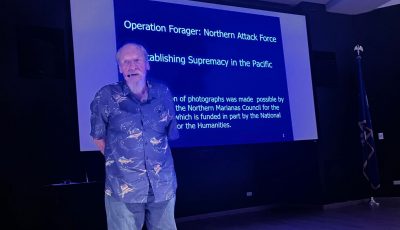‘Rehear decision denying citizenship right in US territories’
After a divided panel of the U.S. Court of Appeals for the 10th Circuit ruled in June that there is no right to citizenship for people born in U.S. territories, current and former elected officials from Puerto Rico, Guam, the U.S. Virgin Islands, and the Northern Mariana Islands, along with a diverse array of scholars, the American Civil Liberties Union and the Virgin Islands Bar Association are calling for the full 10th Circuit to rehear the case.
“It says a lot about the importance of this case to have such broad support for rehearing by the full Tenth Circuit,” said Neil Weare, president and founder of Equally American, which advocates for equality and civil rights for the 3.5 million residents of U.S. territories. “Their arguments really show what is at stake if the divided panel’s decision is allowed to stand.”
The following amicus briefs were filed in support of rehearing en banc:
■ Members of Congress, former members of Congress, and former governors of Guam, the Northern Mariana Islands, Puerto Rico, and the U.S. Virgin Islands:
❑ U.S. Virgin Islands: Delegate Stacey Plaskett, former governors Kenneth E. Map and John de Jongh, and former delegate Donna M. Christian-Christensen
❑ Guam: Delegate Michael F.Q. San Nicolas, former governor Carl Gutierrez
❑ Puerto Rico: Former governors Luis Fortuño, Aníbal Acevedo Vilá, and Dr. Pedro Rosselló
❑ Northern Mariana Islands: Former governor Juan Babauta
■ Argues for rehearing because the divided 10th Circuit panel’s decision creates “a divisive two-tiered citizenship structure whereby individuals born in the 50 states are constitutionally entitled to birthright citizenship, while those born in the territories may receive citizenship only as a favor dispensed by Congress, capable of being withdrawn at will.”
Demonstrates how “citizenship is fully consistent with the preservation of the territories’ cultural heritage and political self-determination.”
■ Citizenship scholars: Argues for rehearing because “the panel majority’s decision rests on premises sharply at odds with the historical record.”
■ Scholars of constitutional law and legal history: Argues for rehearing because “[i]n holding that the Citizenship Clause does not confer birthright citizenship on individuals born in American Samoa, the panel majority relied extensively on the Insular Cases, which the majority itself acknowledged are ‘disreputable to modern eyes’ because of their racist and imperialist underpinnings, and which the Supreme Court has long said should not be ‘given any further expansion.’”
■ American Civil Liberties Union and ACLU of Utah: Argues for rehearing because “the Insular Cases cannot be repurposed to serve the aims of self-determination when they only reinforce congressional dominion over the territories.”
■ Virgin Islands Bar Association: Argues for rehearing because “Although this case seeks to vindicate the citizenship of American Samoans, allowing the panel decision to stand would call into question the foundation and durability of the citizenship of Americans born in the Virgin Islands, and of every American born in any U.S. territory. It sanctions a second class, statutory citizenship that exists only at the whim of Congress, sending the unequivocal message to Virgin Islanders, Puerto Ricans, Guamanians, and Northern Mariana Islanders alike that their citizenship—a foundational principle of every American’s identity—can be destroyed at any moment by a governmental unit in which they have no voting representation.”
The United States has also requested an extension of time to respond to plaintiffs’ petition for rehearing, with the 10th Circuit ordering a response by the United States and Intervenors due by Sept. 15, 2021. (PR)



























